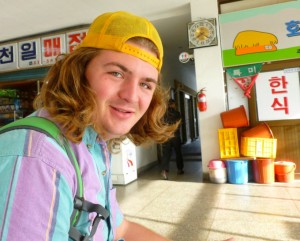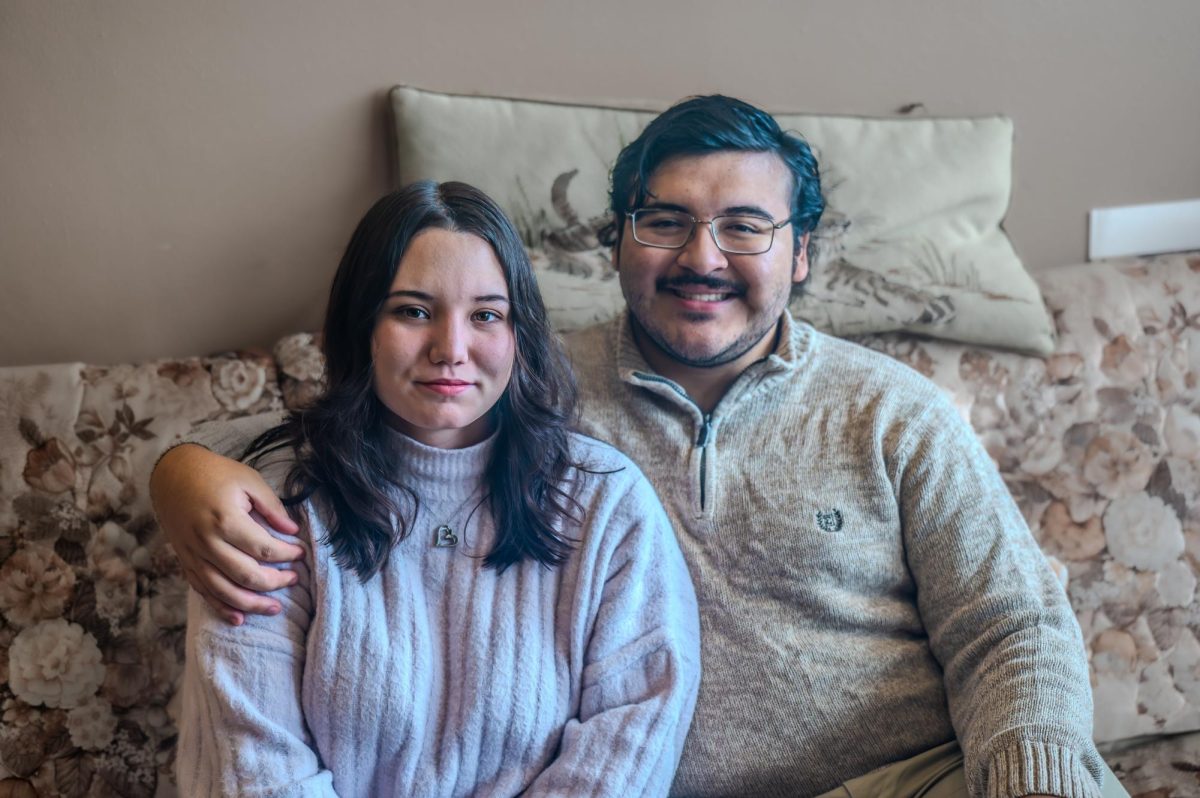By Michael Schoelz
schoelzm@grinnell.edu
This story is a continuation of a story, published in last week’s issue of the Scarlet & Black about Jake “Stony” McVeigh’s ’11 experiences teaching at a poorly-run school in Korea. The full story can be found in the features section of thesandb.com. The story picks up this week, following months of work without pay.

“They told me to wait it out and give them a chance to get more students. But two days later, that’s kind of when everything happened.”
It was a Thursday morning, and McVeigh was in the middle of class with the student who was paying tuition, Stella.
“Jennifer runs in and starts yelling in Korean, ‘They’re leaving! They’re trying to run away!’ and tells me to stand in front of Daniel’s [the boss’s son] doorway so that he couldn’t leave,” McVeigh explained. “Because if they left, then there would be no way to find James. Well, I didn’t feel comfortable with that, so I stood in between Jennifer and Daniel while they yelled at each other and I found out from Stella that they were cursing at each other and saying really bad things to each other.”
Once Jennifer ran out of steam yelling at Daniel, she left to go try to call James again, McVeigh took the time to go back to his room to try to contact HandS Korea and his parents, as well as pack his things. He went back out and the situation hadn’t changed, except now everyone seemed to be packing their things, too. The hotel manager joined the fray to ensure that someone would pay for the six weeks of rooms, and he called the police. McVeigh listened to the harried Korean exchange. Although he didn’t initially understand many of the details, the emotions and implications were clear.
The police, Jennifer and Daniel all left with McVeigh and Stella, the Chinese teacher. The hotel manager and staff were left to piece together their different perspectives on just what had happened over the last six weeks in each of their lives.
“[The hotel manager] was kicking us out but was concerned for myself and the Chinese teacher because he knew that we didn’t have anywhere to go,” McVeigh said. “I was lucky enough to have [HandS Korea]; there was little more that I could’ve expected. I was grateful that I had someone to call.”
As soon as McVeigh relayed the events of that morning to HandS Korea, they sent a car to pick him up and get him out. The next day, they went through all the legal procedures to see what McVeigh’s legal options were. Ultimately, due to his already significant cash loss, the time it would take to move through the legal proceedings, and the unlikelihood that James would be able to pay, McVeigh chose not to pursue James’s purse in the courts. He also chose not to take a position in another school, one of the best in Korea that HandS Korea offered him with several extra perks (like his first months salary in advance) to make up for their catastrophic placement.
“They were trying to make it as convenient for me as possible,” McVeigh explained. “All that is nice, but I just didn’t feel happy. What it boiled down to was, I wasn’t happy and to get to a place where I was stable and happy, I needed to be back home.”
Cutchins agrees with McVeigh that HandS Korea acted admirably in response. He points out that the problem for both McVeigh and programs like HandS Korea is that sometimes all it takes is bad luck to ruin their best-laid plans.
“You can’t cover all of your bases,” Cutchins said. “You have to go forth on trust and sometimes, like in this case, it doesn’t work out, and that’s really unfortunate. When someone is going into an [abroad position] and red flags go up, you need to start asking questions immediately.”
International experiences are supposed to be tough, which is why they are exciting and have the propensity for massive growth. But growth is rarely emotionally—and even physically—painless. When vetting and applying to programs, a critical examination of both the program and oneself is necessary to ensure that together, your goals align. Cutchins suggests stoicism when dealing with the aches and stresses of becoming the person you want to be.
“I make a difference between challenges and problems,” Cutchins said. “Challenges are things that we know exist and are hard, and there’s nothing that we can do about them, and you signed up not despite these but because of these. With challenges, I encourage students all the time to find a person who is doing this right now and ask them what it’s like, … how do you cope and why it’s worthwhile anyway. Then there are problems. Problems are changeable and should be changed.”
Sometimes, it can be hard to tell whether a situation is a challenge or a problem, but once something is identified as a problem it is imperative to be proactive about it. Cutchins offers a few pieces of advice to keep in mind if you think you are encountering more problems than challenges.
“Ask questions not just to the people that you’re working with, but call people back at home,” Cutchins said. “Call a parent, call me, call Mark Peltz at the CDO [Career Development Office). … Don’t be afraid to ask questions. Don’t be afraid to explain rationally and calmly and not hyperbolically why something is a problem and what you would like to see done about it and work cooperatively towards that goal.”
But the lesson to take away from McVeigh’s experience is that despite the trauma and the material loss of resources, time and energy, McVeigh gained invaluable experience working in an impossible situation.
“I still think of it as a learning experience with a lot of positive things that happened,” McVeigh said. “It was a once in a lifetime kind of thing, but it was also traumatic and something that is difficult for me to navigate still.”



















































